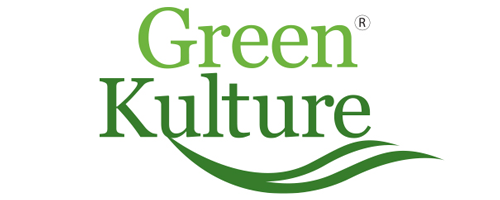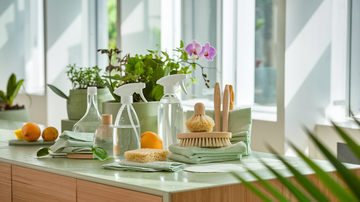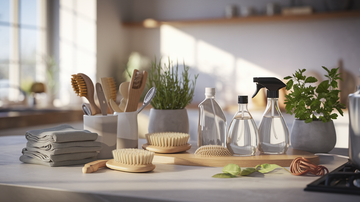Table of Contents
- Introduction to Zero-Waste Living in Singapore
- Kitchen Essentials for Zero-Waste Living
- Bathroom and Personal Care Zero-Waste Products
- Natural Cleaning Solutions for a Zero-Waste Home
- On-the-Go Zero-Waste Essentials
- Singaporean Zero-Waste Brands Making a Difference
- Getting Started with Zero-Waste Living: Practical Tips
- Conclusion: Your Journey Towards a Zero-Waste Lifestyle
Best Zero-Waste Living Products in Singapore: Your Complete Eco-Friendly Guide
Living sustainably in Singapore's urban landscape might seem challenging, but the growing availability of zero-waste products is making eco-conscious choices more accessible than ever. As our island nation faces limited landfill space and increasing environmental pressures, more Singaporeans are embracing zero-waste living as a practical solution to reduce their environmental footprint while creating healthier living spaces.
The zero-waste movement isn't just about environmental conservation—it's about reimagining our relationship with consumption and discovering products that eliminate harmful chemicals from our homes and daily routines. From kitchen essentials to natural cleaning solutions powered by enzymatic technology, today's sustainable products offer effectiveness without compromising on planetary health.
In this comprehensive guide, we'll explore the best zero-waste products available in Singapore in 2025, with special attention to locally-developed solutions that understand our unique tropical climate and lifestyle needs. Whether you're just starting your sustainability journey or looking to expand your eco-friendly arsenal, these products will help you create a healthier environment for yourself, your loved ones, and our shared home.
Kitchen Essentials for Zero-Waste Living
The kitchen generates significant household waste, from food packaging to cleaning supplies. Fortunately, Singapore offers numerous zero-waste alternatives that help reduce this environmental burden while creating a healthier cooking space.
Reusable Food Storage Solutions
Single-use plastic wrap and disposable containers contribute enormously to Singapore's waste stream. Consider these sustainable alternatives:
Beeswax or Vegan Wax Wraps: These natural, reusable food wraps have become increasingly popular in Singapore. Made from cotton infused with beeswax or plant-based waxes, they provide a breathable, moldable alternative to plastic wrap. Local brands offer these wraps in vibrant designs that bring joy to your kitchen while keeping food fresh. Most wraps last 6-12 months with proper care and can be composted at the end of their life cycle.
Silicone Food Storage Bags: Durable silicone storage bags offer an excellent alternative to disposable plastic bags. These dishwasher-safe, leak-proof options come in various sizes and can withstand both freezing and high temperatures. While the initial investment is higher than disposable options, the long lifespan makes them economically sensible over time.
Stainless Steel Containers: For longer-term food storage, stainless steel containers provide a non-toxic, virtually indestructible option. Many Singaporean households are returning to this traditional storage solution, appreciating both the durability and the absence of plastic chemicals leaching into food.
Sustainable Kitchen Cleaning Products
Keeping your kitchen clean shouldn't come at the cost of introducing harmful chemicals into your home or the environment. These zero-waste cleaning options offer effective alternatives:
Biodegradable Dish Brushes: Made from natural materials like coconut fiber, bamboo, or wood, these brushes effectively clean dishes without shedding microplastics. Their compostable nature means they return to the earth at the end of their useful life rather than lingering in landfills for centuries.
Enzymatic Kitchen Cleaners:Natural cleaners powered by multi-enzyme technology offer powerful cleaning action without harmful chemicals. These cleaners use fruit and vegetable enzymes that break down food residues, grease, and organic matter naturally. Green Kulture's enzymatic kitchen cleaners are particularly effective in Singapore's humid climate, preventing mold while remaining safe for families and pets.
Reusable Swedish Dishcloths: These absorbent, quick-drying cloths replace both paper towels and synthetic sponges. Made from cellulose and cotton, they can absorb 20 times their weight and be washed hundreds of times before composting. Their natural antibacterial properties make them ideal for Singapore's warm climate.
Bathroom and Personal Care Zero-Waste Products
The bathroom is often overlooked in sustainability discussions, yet it's a significant source of plastic waste and chemical exposure. These zero-waste alternatives help create a healthier personal care routine:
Plastic-Free Personal Care
Shampoo and Conditioner Bars: These solid alternatives to bottled hair products eliminate plastic packaging while delivering excellent results. Many Singapore-available brands now formulate specifically for our tropical climate, addressing issues like humidity and frequent washing. A single shampoo bar can replace 2-3 bottles of liquid shampoo, making it both eco-friendly and economical.
Bamboo Toothbrushes and Natural Dental Products: Conventional toothbrushes contribute millions of pieces of plastic waste yearly. Bamboo alternatives with plant-based bristles provide an effective, compostable option. Pair them with tooth tablets or powder in refillable containers for a completely zero-waste dental routine.
Reusable Razors: Safety razors with replaceable blades have made a strong comeback in Singapore. These durable metal razors provide a close shave while eliminating plastic waste. Though the initial investment is higher, the replacement blades cost significantly less than cartridge refills, making them economically advantageous over time.
Sustainable Bathroom Cleaning
Enzymatic Bathroom Cleaners: The bathroom's moist environment makes it particularly susceptible to mold and bacterial growth. Natural cleaners powered by enzymatic solutions effectively tackle these issues without chlorine or ammonia. Green Kulture's enzymatic bathroom cleaner uses natural fruit and vegetable enzymes that continue working long after application, naturally breaking down organic matter and preventing regrowth.
Compostable Cleaning Cloths: Microfiber cloths, while effective, shed microplastics with each wash. Natural fiber alternatives made from cotton, hemp, or coconut fiber provide excellent cleaning performance without environmental harm. When paired with enzymatic cleaners, they create a truly sustainable bathroom maintenance system.
Natural Cleaning Solutions for a Zero-Waste Home
Creating a zero-waste home extends beyond single products to comprehensive cleaning systems that eliminate both waste and harmful chemicals. Singapore's high-density living makes healthy, effective cleaning solutions particularly important.
The Power of Enzymatic Cleaners
Enzymatic cleaning solutions represent a significant advancement in sustainable home care. Unlike conventional cleaners that mask odors and temporarily remove visible dirt, enzymatic cleaners work at the molecular level to break down organic matter—including proteins, starches, oils, and grease.
Green Kulture's enzymatic cleaners harness multi-enzyme technology derived from fruit and vegetable fermentation. This natural approach provides several advantages:
Continued Cleaning Action: The enzymes remain active after application, continuing to break down organic matter long after you've finished cleaning. This provides lasting protection against odors and bacterial growth—especially valuable in Singapore's humid climate.
Child and Pet Safety: Without harsh chemicals, these cleaners provide peace of mind for families. You can clean children's toys, pet areas, and food preparation surfaces without worrying about toxic residues.
Effective Odor Elimination: Rather than masking odors with fragrances, enzymatic solutions eliminate odor-causing compounds at the source. This makes them particularly effective for pet areas, trash bins, and other challenging spaces.
Refill Systems: Reducing Packaging Waste
Modern zero-waste cleaning extends beyond the formula to the packaging system. Refill options allow consumers to reuse durable containers while purchasing only the cleaning solution they need.
Green Kulture's refill system exemplifies this approach, allowing customers to purchase concentrated refills that significantly reduce plastic waste. Using a single bottle over multiple refills can prevent dozens of plastic containers from entering the waste stream.
For maximum economy and minimal waste, consider bundle options that provide refills for multiple cleaning needs at reduced prices. This approach not only minimizes environmental impact but also reduces household expenses over time.
Multi-Purpose Cleaning Tools
Natural Fiber Scrub Brushes: Coconut fiber and other plant-based scrubbing tools provide effective cleaning for tough jobs without shedding microplastics. Look for options with replaceable heads that minimize waste while maximizing cleaning power.
Natural Cleaning Cloths: Untreated cotton or hemp cleaning cloths provide durable, effective cleaning surfaces that can be washed and reused for years before composting. These simple tools eliminate the need for paper towels while providing superior cleaning performance.
On-the-Go Zero-Waste Essentials
Singaporeans' busy lifestyles often involve eating out, takeaway meals, and on-the-move consumption. These zero-waste essentials help reduce single-use waste when you're away from home:
Reusable Food and Beverage Containers
Collapsible Silicone Containers: These space-saving containers expand for food storage and collapse when empty, making them ideal for Singapore's compact living spaces. They're perfect for takeaway meals from hawker centers and restaurants, eliminating disposable packaging waste.
Stainless Steel or Glass Water Bottles: Singapore's tropical climate makes staying hydrated essential. A durable water bottle eliminates countless single-use plastic bottles while keeping beverages at the desired temperature. Look for insulated options that keep water cool throughout Singapore's hot days.
Reusable Cutlery Sets: Lightweight bamboo or stainless steel cutlery sets that include chopsticks are particularly useful in Singapore's diverse food scene. Many local brands offer compact sets designed to fit easily in purses or backpacks.
Shopping Essentials
Reusable Shopping Bags: While Singapore has reduced single-use plastic bags, reusable shopping bags remain essential for zero-waste living. Look for compact options made from natural fibers that can be easily carried in your daily bag.
Produce Bags: Lightweight mesh or cotton bags eliminate the need for plastic produce bags when shopping for fruits and vegetables. These washable alternatives keep produce fresh while reducing plastic waste.
Portable Surface Sanitizer: In public spaces, having a natural sanitizing option provides peace of mind without environmental harm. Green Kulture's enzymatic sanitizing sprays offer effective disinfection in a compact, refillable format that's perfect for on-the-go use.
Singaporean Zero-Waste Brands Making a Difference
Supporting local sustainable brands not only reduces shipping emissions but also encourages products designed specifically for Singapore's unique climate and lifestyle needs.
Green Kulture: Pioneering Natural Enzymatic Solutions
Founded and manufactured in Singapore, Green Kulture has pioneered enzymatic cleaning technology that addresses the specific challenges of our tropical climate. Their commitment to accessibility has made natural cleaning products more affordable and widely available across Singapore.
What distinguishes Green Kulture is their focus on multi-enzyme technology derived from fruit and vegetable fermentation. This natural approach provides powerful cleaning action without synthetic chemicals, creating healthier homes and workspaces while reducing environmental impact.
Their comprehensive range includes specialized cleaners for different areas of the home, all available through an innovative refill system that minimizes packaging waste. For those looking to make a complete transition to natural cleaning, their bundle options provide an economical starting point.
Other Notable Singaporean Sustainable Brands
Singapore's sustainability ecosystem has flourished in recent years, with numerous local brands creating innovative zero-waste solutions:
The Sustainability Project: This Singaporean brand offers a wide range of zero-waste products for everyday use, from kitchen essentials to personal care items. Their curated collections make transitioning to sustainable living more accessible for beginners.
Bamboo Straw Girl: Started by a passionate Singaporean environmentalist, this brand pioneered reusable bamboo straws and has expanded to offer various plastic-free alternatives for everyday use.
Your Sustainable Store: This local retailer brings together various eco-friendly products with a focus on items suitable for Singapore's tropical climate and urban lifestyle.
By supporting these homegrown initiatives, Singaporeans can help foster a more sustainable local economy while reducing the carbon footprint associated with imported products.
Getting Started with Zero-Waste Living: Practical Tips
Transitioning to a zero-waste lifestyle doesn't require immediate perfection. These practical approaches can help you begin your journey:
Start with High-Impact Swaps
Rather than trying to change everything at once, focus on replacing items you use frequently:
Daily Use Items: Water bottles, coffee cups, shopping bags, and food containers offer immediate waste reduction when replaced with reusable alternatives.
Cleaning Products: Switching to refillable, natural cleaners eliminates both packaging waste and chemical exposure in your home. Start with multi-purpose products that replace several conventional cleaners.
Personal Care Basics: Items like toothbrushes, shampoo, and deodorant have excellent zero-waste alternatives that can significantly reduce your bathroom waste.
Adopt the "Use What You Have" Mindset
True sustainability means using existing items to their full potential before replacing them:
Finish Current Products: Use up conventional products before replacing them with sustainable alternatives. This prevents waste while giving you time to research the best replacement options.
Repurpose Existing Containers: Glass jars, durable plastic containers, and other packaging can often be repurposed for storage or refill systems before purchasing new items.
Create Transition Plans: For more expensive items, create a replacement schedule that allows you to budget for quality, durable alternatives as existing items wear out.
Build Community Connections
Zero-waste living becomes easier with community support:
Join Local Groups: Singapore has several active zero-waste communities that share tips, product recommendations, and support. Look for these groups on social media platforms or through community centers.
Participate in Workshops: Many Singaporean organizations offer workshops on sustainable living skills, from making natural cleaning solutions to composting in small spaces.
Share Resources: Consider forming sharing networks for less frequently used items. Tools, specialized kitchen equipment, and other occasionally needed items can be shared among friends or neighbors, reducing individual consumption.
Remember that zero-waste living isn't about perfection but progress. Each sustainable choice creates positive impact, regardless of where you are in your journey.
Conclusion: Your Journey Towards a Zero-Waste Lifestyle
As we've explored throughout this guide, zero-waste living in Singapore is becoming increasingly accessible and rewarding. The products and approaches highlighted offer practical ways to reduce environmental impact while creating healthier living spaces—all without sacrificing convenience or effectiveness.
The true power of zero-waste living extends beyond individual products to a broader mindset shift. By questioning the necessity of single-use items and seeking durable, natural alternatives, we collectively reduce demand for environmentally harmful products and manufacturing processes. Each reusable water bottle, refilled cleaning container, and natural enzymatic cleaner represents a small but meaningful step toward a more sustainable Singapore.
Particularly promising is the growing ecosystem of local Singaporean brands creating solutions specifically for our unique context. Companies like Green Kulture are demonstrating that effective, safe products can be developed using natural ingredients and innovative approaches like enzymatic solutions. By supporting these local initiatives, we strengthen Singapore's sustainability movement while reducing the carbon footprint associated with imported alternatives.
Whether you're just beginning your zero-waste journey or looking to expand your existing practices, remember that sustainability is a process rather than a destination. Each mindful choice contributes to the collective impact, creating a healthier environment for ourselves, our loved ones, and future generations in Singapore.
As Singapore continues evolving toward greater sustainability, the availability and quality of zero-waste products will only improve. The innovations highlighted in this guide demonstrate that we can maintain convenient, effective living while dramatically reducing environmental impact and chemical exposure.
Your zero-waste journey, whether just beginning or well underway, contributes to a larger movement transforming how we live, consume, and care for our homes. By making thoughtful choices about the products we bring into our lives, we contribute to building a Singapore where sustainable living is the natural choice—not just a niche lifestyle.
Remember that perfect zero-waste living isn't the goal; rather, it's about making better choices whenever possible and supporting the brands and systems that enable more sustainable living. Each positive choice creates ripple effects that extend far beyond individual impact.
Ready to Start Your Zero-Waste Journey?
Explore Green Kulture's range of natural, enzymatic cleaning solutions designed and made in Singapore. Our products create healthier homes while reducing environmental impact through innovative, plant-derived technology.





